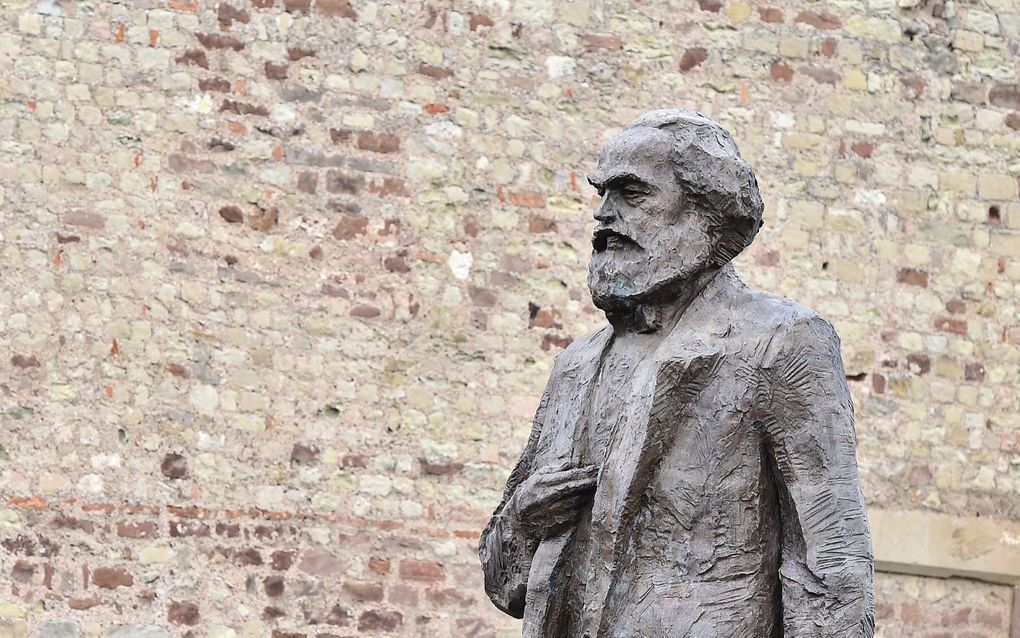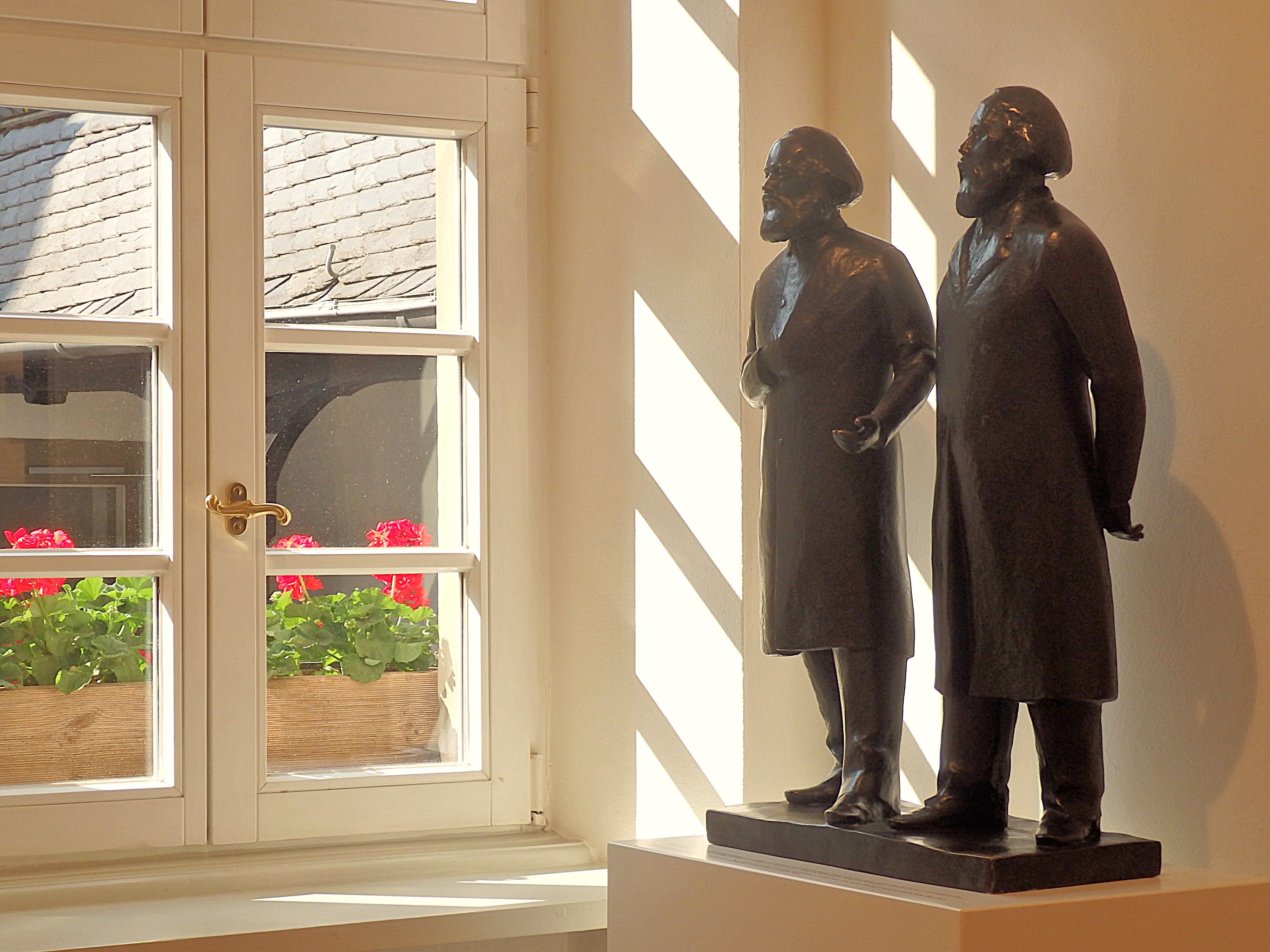Look how teachers praise socialism to your children – and why this is wrong

Karl Marx in Trier. Photo AFP, Jean-Christophe Verhaegen
Christian Life
Freedom and responsibility. If those elements are in balance, Karl Marx’s followers have little to do. But Cédric Placentino saw that schools teach this differently.
Stay up to date with Christian news in Europe? Sign up for CNE's newsletter.
“Capitalists are people who have great wealth or capital...” This is the definition of capitalism that Finnish high schools teach. By deduction, it follows that those without this significant capital, “the poor,” are not capitalists.
With such a definition, these same schools can portray socialism as a positive force for society: “Socialism is a 19th-century ideology that seeks to improve the conditions of workers.”
This contrast is reminiscent of Karl Marx’s ideology, which viewed history solely in terms of the struggle between wealthy capitalists and poor workers. For Marx, communism, i.e., economic equality, was the ideal.
The capitalism-socialism opposition presented above is known as a “straw man argument.” The aim of this method is simple: define what one wants to destroy in an erroneous and, above all, negative way and then present what one wants to promote as the necessary corrective.
Although all the experiments with communism during the 20th century failed (look at the Soviet Union, Cuba, Ethiopia), this interpretation of history still seems to have followers among high school teachers and university professors in Finland, and elsewhere in Europe.
In short, it sounds like this: Capitalism is evil. Let’s replace it with socialism!
Capitalism and Christianity
Why discuss capitalism in an article in a series that seeks to respond to the false ideas about Christianity taught in our schools? Simply, because this attack on capitalism is no less than an attack on the Christian worldview.
The ideal society, as God intended it, is close to the ideas of capitalism as developed in the 18th and 19th centuries. Genesis 1 teaches that God declared His creation to be very good. He made the earth for the benefit of man, whom He created in His image to rule and fill it. This implies certain economic freedom.
The Ten Commandments confirm these principles. The eighth Commandment teaches, “You shall not steal,” while the tenth teaches, “You shall not covet your neighbour’s house; you shall not covet... his male or female slave, his ox or donkey, or anything that belongs to him” (Exodus 20:15,17).
God’s vision of society was then confirmed through the prophet Micah (4:4): “They shall each sit under his vine and under his fig tree, and no one shall make them afraid,” – not even the state’s progressive taxes.
All these principles paint a picture of a society that comes close to a capitalist society. Please read about this from several leading thinkers from past centuries, like Adam Smith and Ludwig von Mises, although many of them, like the latter, were not Christians.
The combination of (economic) freedom and (moral and social) responsibility leads to a situation that very much resembles capitalism.
What is capitalism?
The definition of capital that Finnish high school children are taught describes it as something that capitalists carefully guard in their safes, like Uncle Scrooge. But this is a caricature of capitalism.

According to the parable of the talents, God does not give a man capital to bury it underground. God gives it so that it may be multiplied, whether the initial capital is abundant or not (Matthew 25:14-30).
This is why the English apologist Stephen Perks defines “capital as ... the stock of material resources at the disposal of an individual or society that is used to produce goods and satisfy wants” (see The Political Economy of a Christian Society, pages 63-64). In a capitalist society, wealth is supposed to satisfy the needs of individuals or society at large.
When a nation’s culture is significantly exposed to the Bible's teachings, this also has economic consequences. The Bible teaches to multiply one’s talent and to care for one’s neighbour. Prosperity and generosity are two concepts upheld by the Bible. It is, therefore, no coincidence that capitalism mainly developed in Protestant Christian nations.
The socialist ideal is kept alive by several misconceptions. Here are a few of them:
First, it was socialism, not capitalism, that improved the living conditions of the poorest.
Wrong, because this idea forgets the widespread poverty in Europe at the dawn of the Industrial Revolution. Mises’ analysis of capitalism in 19th-century England paints a very different, and more faithful picture:
“The factories freed the authorities and the ruling landed aristocracy from an embarrassing problem that had grown too large for them. They provided sustenance for the masses of paupers. They emptied the poor houses, the workhouses, and the prisons. They converted starving beggars into self-supporting breadwinners”, as he wrote in Human Action: a Treatise on Economics (page 615).
Second, workers were exploited in nineteenth-century capitalist societies.
This idea was particularly propagated through Emile Zola’s novel Germinal (1885). Although wages could sometimes be derisory in 19th-century capitalist societies, no worker was forced to work. Mises’ commentary is once again insightful:
“The factory owners did not have the power to compel anybody to take a factory job. They could only hire people ready to work for the wages offered to them. Low as these wage rates were, they were nonetheless much more than these paupers could earn in any other field open to them.”
Harmony
Historian Eugen Rosenstock-Huessy demonstrated that class struggle (the basis of Marx’s philosophy) did not exist in England during his lifetime there. In general, workers and employers worked in relative harmony.
Of course, capitalism never eradicated poverty on earth. Jesus taught that the poor would always be with us. Nonetheless, the Bible promotes thriving for prosperity while being content with what we have and cultivating generosity. This is why a capitalist model of society, when rooted in Christianity and Biblical responsibility, is the best model that can bring prosperity to the majority.
It is, therefore, important that Christians tackle these false views spread in the textbooks that their children encounter at school. Giving them the right tools to understand reality will empower them to build healthy societies as adults.
Related Articles







